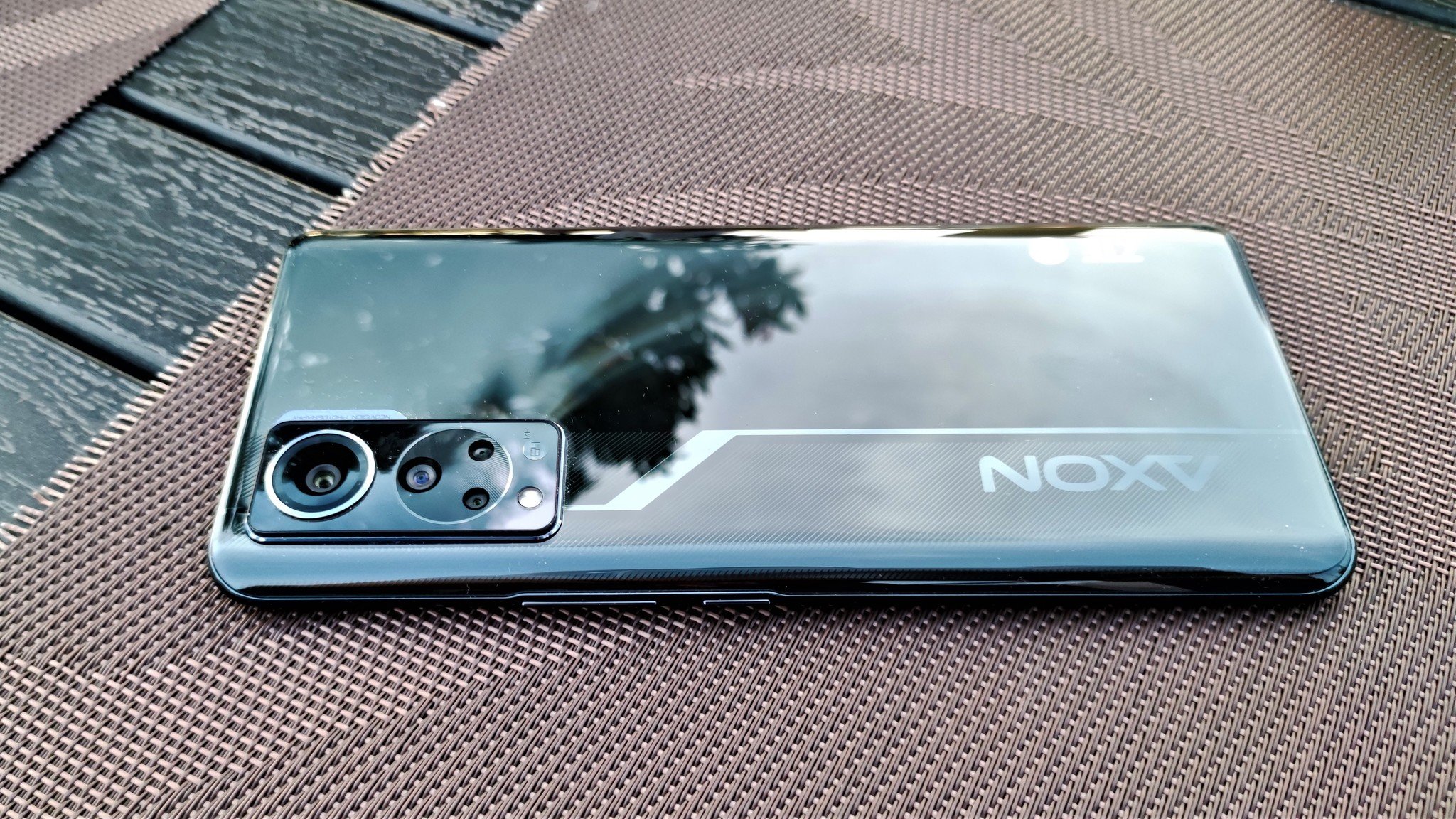Android Central Verdict
Bottom line: You get a true-blue fullscreen experience with the ZTE Axon 30's vivid display, unmarred by any cutout or hole. Watching content on it is a delight, and you can immerse in gaming for hours at an end without overheating or performance drops. It charges fast, and the software is so close to stock Android. It would almost be perfect if it weren't for the blurry selfie snapper and finicky fingerprint scanner.
Pros
- +
Gorgeous notchless 6.92" 120Hz AMOLED display
- +
Under-display camera invisible to the human eye
- +
Decent main cameras
- +
MyOS 11 offers a clean software experience
- +
SD 870 5G delivers reliable performance
- +
Triple cooling system
- +
65W fast charging
- +
Expandable storage
Cons
- -
Abysmal front camera
- -
Inconsistent in-display fingerprint scanner
- -
So-so mono speaker
- -
No wireless charging
- -
No IP rating
- -
Plastic back feels cheap
Why you can trust Android Central
Just when we think technological advancement has reached its pinnacle, things start to get even more exciting. We've seen e-ink screens that mimic paper, displays that fold, and now, glass that can allow a camera to peek through it. Samsung's Galaxy Z Fold 3 may have popularized the new-fangled under-display camera (UDC) technology, but it was ZTE who debuted the world's first phone with this feature.
The ZTE Axon 20 5G was the first of its kind in the world of Android phones. It cleverly housed a 32MP selfie camera underneath the phone's 6.92-inch OLED display, buried under a layer of pixels and clever tech wizardry. Now, the successor to the Axon 20 5G is here and, along with it, the newer and better version of ZTE's UDC technology.
I have been using the Axon 30 5G as my primary phone for a week now, and I have some very strong feelings about it. The Axon 30 has so much going for it, but the hero is the stunning display. I am absolutely blown away by the unbroken stretch of glass on the phone, unblemished by notches or holes. You also get robust internals and fantastic performance overall.
Despite all that, I find myself having to pause when I'm on the cusp of recommending it to someone. In some key areas, the ZTE Axon 30 falls short of being one of the best affordable Android phones. This is mainly because of the terrible front camera, plus a few other minor flaws. Each issue is small in isolation but added together, they can undo the potential of a great phone.
ZTE Axon 30 5G: Price and availability
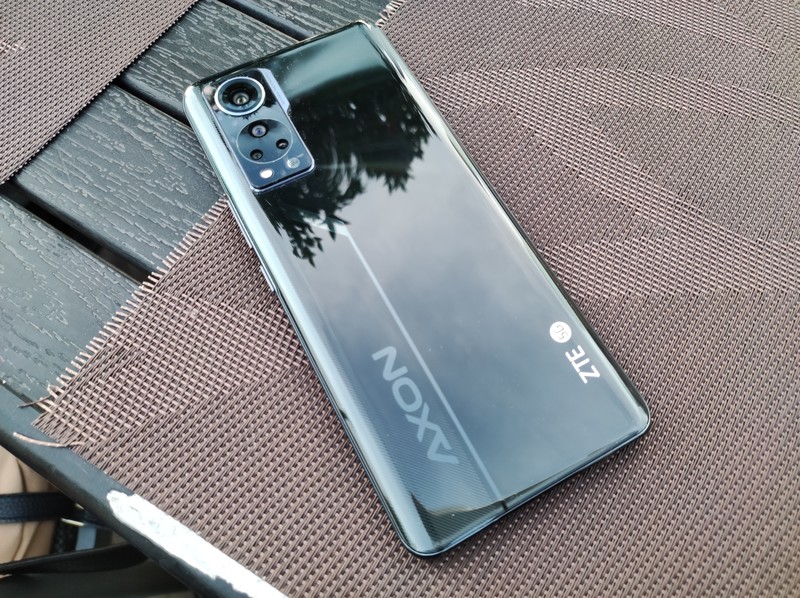
The ZTE Axon 30 5G will be available to buy on September 9, 2021, in North America, Europe, and a few other regions. Prospective customers can purchase the 8GB RAM variant with 128GB of onboard storage for $499/€499/£429. Meanwhile, the top-end version with 12GB of RAM and 256GB of internal storage will cost $599/ €599/ £519.
ZTE will offer a one-day exclusive discount on September 9, where customers will be able to buy the Axon 30 5G for $10 less than the retail price on its site.
ZTE Axon 30 5G: Design
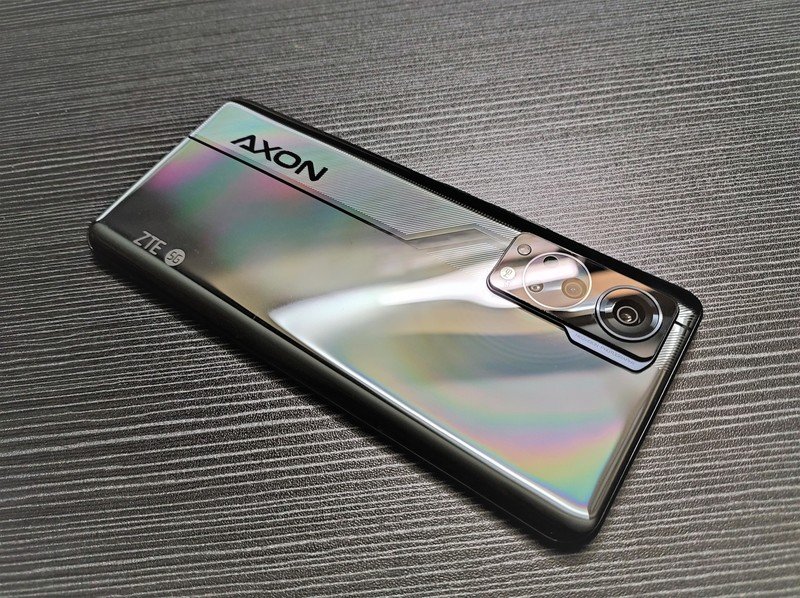
If you're familiar with the ZTE Axon or Blade series, you'll notice that the Axon 30 hasn't evolved much in design compared to its predecessor. The ZTE Axon 30 5G comes in two glossy color options: Black and Aqua. I was sent the darker shade that features a holographic finish. You can't really tell that the phone is black because it shifts colors when light bounces off of it.
Even though the ZTE Axon 30 looks premium, its back is made of plastic and doesn't feel all that fancy to touch.
Even though it looks premium, the back is actually made of plastic and doesn't feel all that fancy to the touch. The rectangular camera unit is in the upper left corner on the rear and has metallic blue accents. Personally, I really like the overall look of the Axon 30, even if I'm not happy with the plasticky feel. The giant 'Axon' and 'ZTE 5G' logos plastered on the rear aren't for everyone, so you might want to get a case if it bothers you.
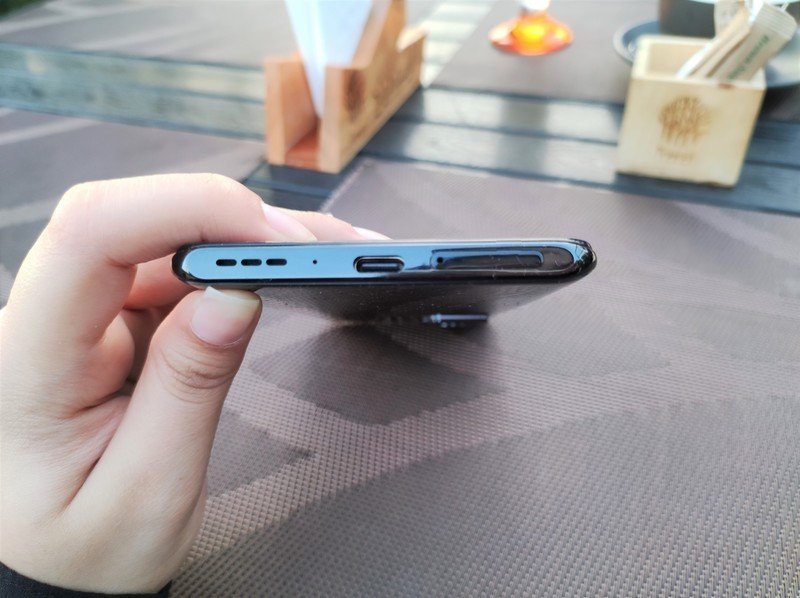
Turn the phone sideways to the right, and you will find the volume button followed by the power button in a neat arrangement. At the bottom of the Axon 30, there is a mono speaker with DTS: X Ultra sound, a USB-C port, and the dual SIM slot that can accommodate a microSD card if used with a single SIM. Sadly, there is no 3.5mm headphone jack.
The bottom-firing speaker doesn't come close to being loud and clear enough for video calls or watching videos, so you'll have to get a pair of wireless earbuds or Bluetooth headphones to please your aural senses. If you don't want to throw away your comfy wired headset, ZTE is kind enough to include a USB-C headphone adapter in the box.
ZTE Axon 30 5G: Display
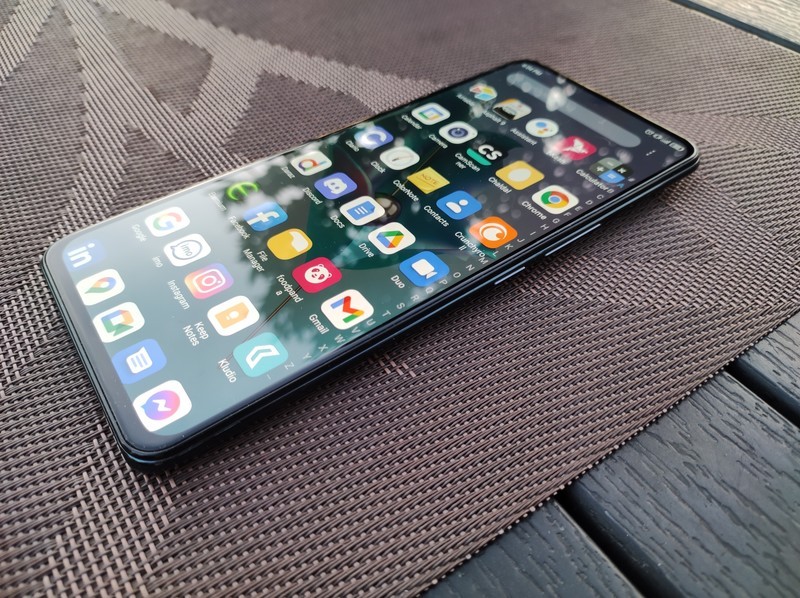
Displays are the most crucial element of phones because that's what you look at all day, every day. ZTE left no holes barred with the gargantuan 6.92-inch 20.5:9 FHD+ AMOLED display, sitting blemish-free and entirely uninterrupted. There is no hideous teardrop notch or hole-punch cutout covering any part of the screen. You can configure the refresh rate and set it to 60Hz, 90Hz, or a blazing fast 120Hz. The display is fairly bright and easily readable in bright daylight.
The last generation under-display camera (UDC) technology on the Axon 20 5G had its limits capped. It allowed for a pixel density of 200ppi to be layered on top of the UDC. This resulted in a stark difference in image quality between the rest of the display and the portion covering the hidden selfie camera. To put things in perspective, the pixel density of the screen covering the Galaxy Z Fold 3's UDC is only 144ppi.
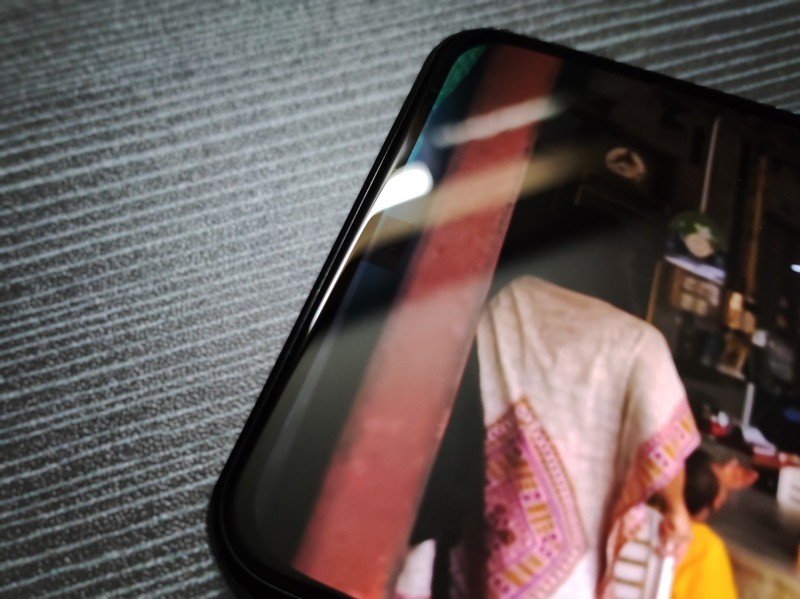
Such discrepancies make the pixelated part of the display obvious to the naked eye. ZTE bolstered the Axon 30 5G's display tech to combat this, using seven material layers and AI assistance. As a result, the display section covering the UDC of the Axon 30 has an impressive pixel density of 400ppi. Simply put, the end result is a stunning all-glass marvel of a display.
The Axon 30's under-display camera has come the closest to being truly 'invisible' to the naked eye.
It is incredibly hard to spot the UDC on the Axon 30's screen. This is the closest the under-display camera has come to be truly "invisible." You can't see it with your bare eyes unless the light hits it just right and the display is showing something black or really dark. Even with my camera, I had my work cut out for those UDC shots.
The phone's other under-display feature is much more common: an in-display fingerprint scanner. Unfortunately, I find using the fingerprint reader really irksome. I found it only works 6 out of 10 times; the other 4 times, you're left sticking your thumb into the glass vigorously as if it were stamping ink. I'd eventually give up and use the good ol' password or pattern to unlock the phone — as there's no face unlock on the Axon 30.
ZTE Axon 30 5G: Performance and specs
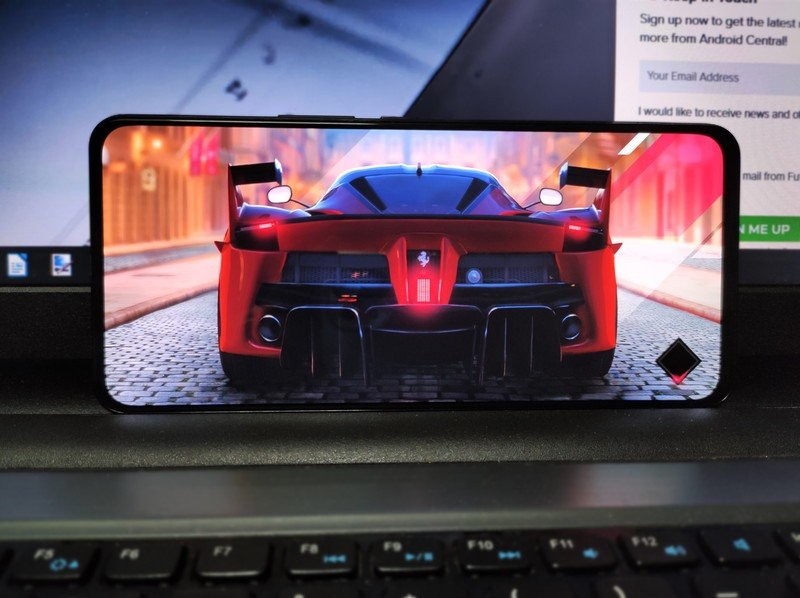
Under the hood, you'll find plenty to like in the ZTE Axon 30 5G. Powered by the Snapdragon 870 5G chipset and 8GB of RAM, this phone doesn't get bogged down by any action or activity. You can play any of the best Android games and while away your time blissfully. Productivity and processor-heavy apps are handled without fault, and everything works in a snappy, satisfying fashion.
| Category | ZTE Axon 30 5G |
|---|---|
| Operating System | MyOS 11 based on Android 11 |
| Display | 6.92 inches, 2460x1080 (20.5:9) resolution, AMOLED |
| Processor | Qualcomm Snapdragon 870 5G |
| Graphics | Adreno 650 |
| Memory | 8GB/ 12GB |
| Storage | 128GB/ 256GB UFS 3.1 |
| Expandable Storage | microSD |
| Rear Camera 1 | 64MP, ƒ/1.8, Sony IMX682, primary |
| Rear Camera 2 | 8MP, ƒ/2.2, 120° field of view, ultra-wide |
| Rear Camera 3 | 5MP, macro |
| Rear Camera 4 | 2MP, depth |
| Front Camera | 16MP, f/2.5, Under-display |
| Security | In-display fingerprint scanner |
| Connectivity | Wi-Fi 6, LTE/CDMA/GSM/5G, Bluetooth 5.1, NFC |
| Ports | USB-C, microSD, dualSIM, |
| Audio | Mono speaker |
| Battery | 4,200mAh, 65W wired fast charging |
| Water Resistance | ❌ |
| Dimensions | 170.2 x 77.8 x 7.8mm |
| Weight | 6.67oz (189g) |
| Colors | Black, Aqua |
The phone's triple cooling system is another fantastic feature. It combines the collective cooling power of the vapor chamber, a Graphene copper matrix composite substance, and a high-power heat-transmitting gel. I am very pleased with my gaming experience on the Axon 30, though it isn't surprising considering ZTE owns the Nubia RedMagic brand responsible for some of the best gaming phones.
MyOS 11 is very close to stock Android and you don't get any bloatware installed on the Axon 30 5G out of the box.
Where the RedMagic gaming phones are notorious for software issues, I am happy to report that the ZTE Axon 30 offers a far better experience on the software side of things. For the Axon 30, ZTE scrapped its old custom skin called MiFavor OS and started anew. The Axon 30 is ZTE's first phone to come with the company's brand new MyOS 11 based on Android 11. The skin is very close to stock Android, and you don't get any bloatware installed on the handset out of the box.
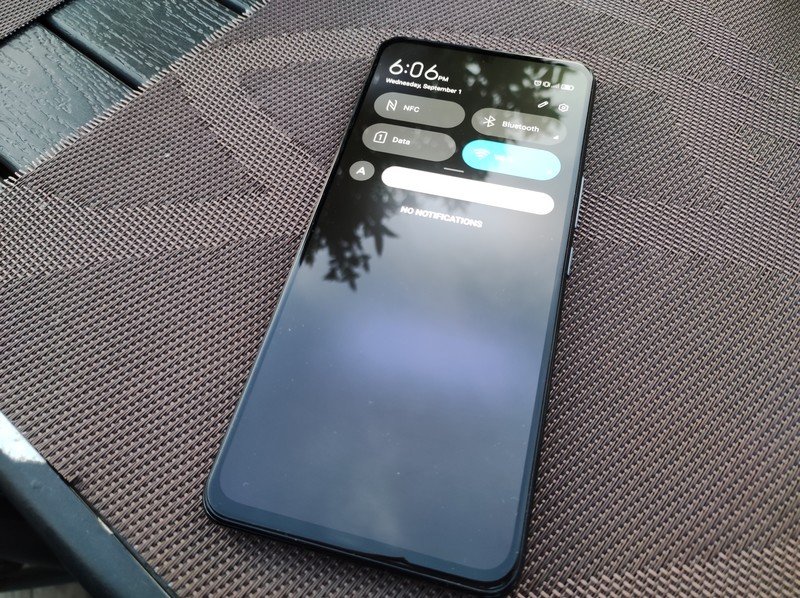
A drawback of the simplicity of MyOS 11 is that I find it too plain and somewhat boring at times. Sure, there's one gesture where you can shake the phone to turn on the flashlight. But that's the end of the road when it comes to fancy features of the Axon 30. You can't even customize the theme and accent colors of the phone beyond light and dark mode. For that, your best bet is third-party theming apps that offer wallpapers, widgets, and icons.
It's all no-nonsense, all work, and no play with this phone's OS. The most fun I had with the software was playing around with the Always On Display. As a fan of customizability and neat features, this is a little disappointing. Nonetheless, the bloat-free, almost-stock Android operating system is a dream to use, so I'll give credit where credit is due.
ZTE Axon 30 5G: Battery
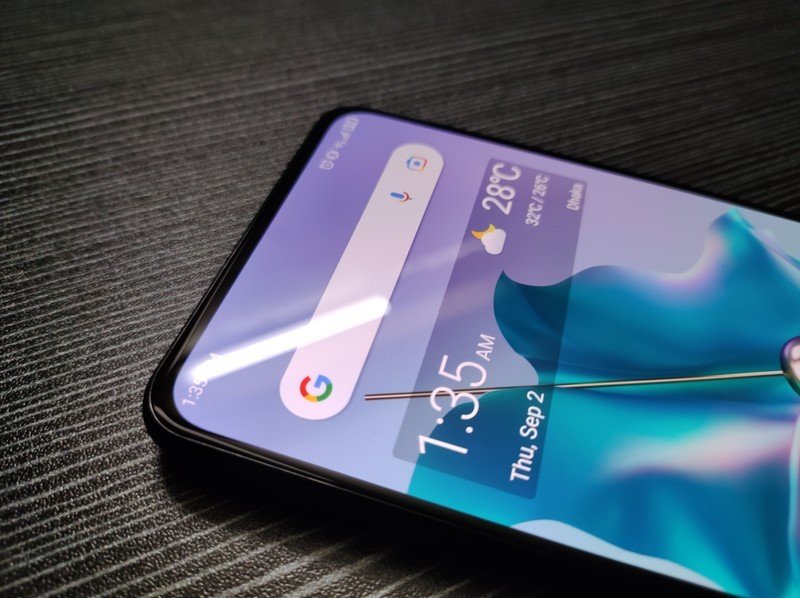
The Axon 30 5G sports a 4,200mAh battery inside. You get all-day battery life with regular use, taking video playback and light gaming into account. I am always on my phone (to the dismay of my family members), and I get about 25 to 26 hours in one go out of mine on average. This includes playing games such as Eternium and Warhammer: Odyssey for around half an hour apiece. I set the refresh rate to auto which means the phone automatically determines the appropriate refresh rate setting based on your usage and power consumption.
The Axon 30 5G supports 65W fast charging that tops up the 4,2000mAh battery at an incredible rate.
Increasing the refresh rate to the max 120Hz setting does take a toll on the Axon 30, though. In that case, it will definitely need to be recharged at least once a day. Thankfully, the phone supports 65W fast charging that tops up the 4,2000mAh battery at an incredible rate. The Axon 30 5G is rated to go from 0% to 100% in just 45 minutes. According to my testing, you can juice up your Axon 30 from zilch to a full 100% in under 50 minutes. You get a 65W charger out of the box, so you won't need to buy one separately.
ZTE Axon 30 5G: Cameras
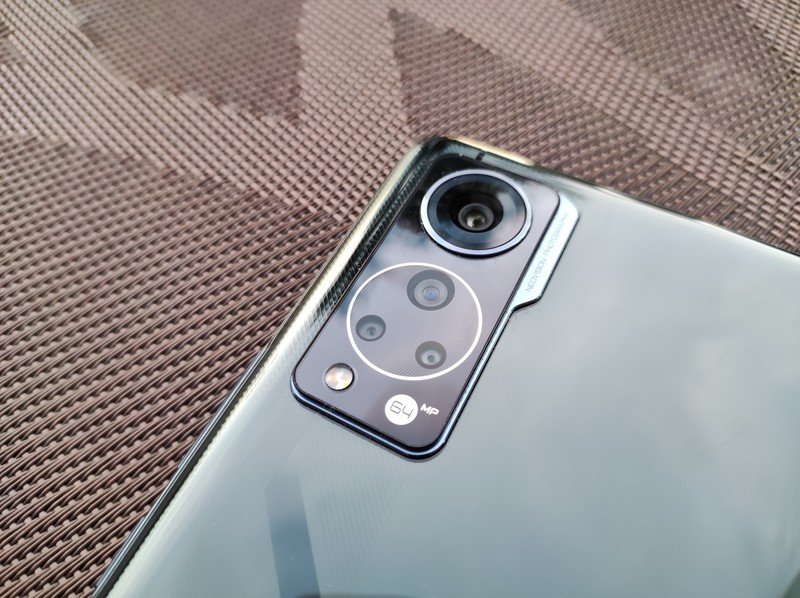
Although the UDC front camera stands miles apart from the crowds, ZTE hopped on to the quad-camera bandwagon for the rear camera setup. The Axon 30 5G has the 64MP Sony IMX682 sensor as its primary camera and a secondary 8MP wide-angle lens with a 120° FoV. Then you have the standard 5MP macro and 2MP depth sensors.
The main camera has up to 20x digital zoom, plus the option to capture images in the full 64MP resolution if you like. It does a good job of capturing natural colors and retains a decent amount of detail as you zoom in. The shots came out pretty decent, as you would expect from a $500 phone.
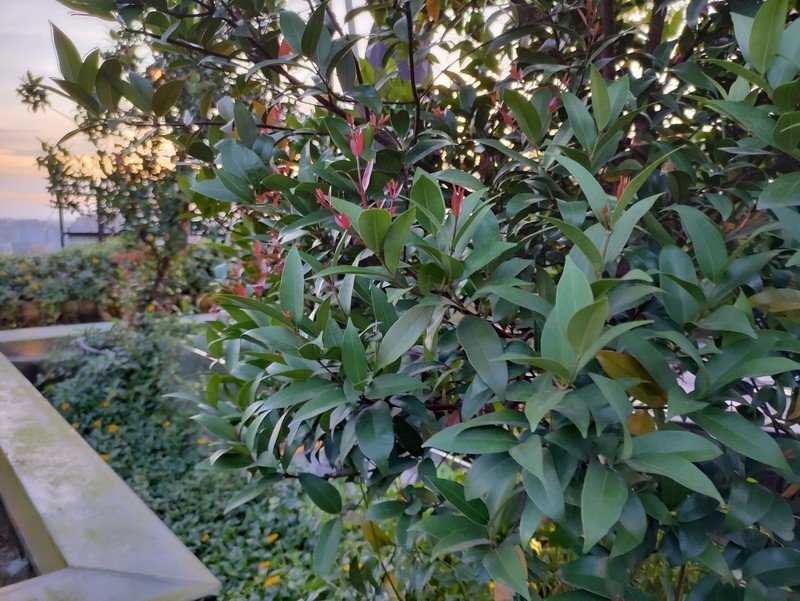

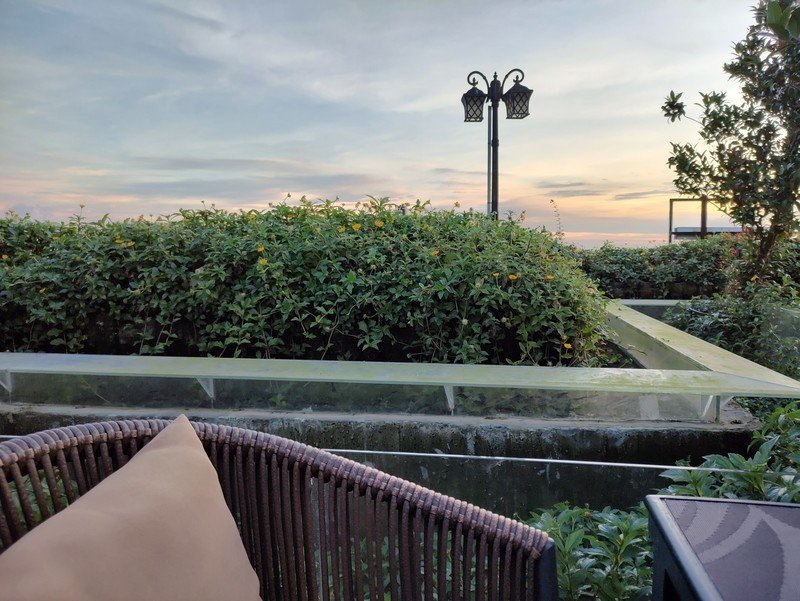
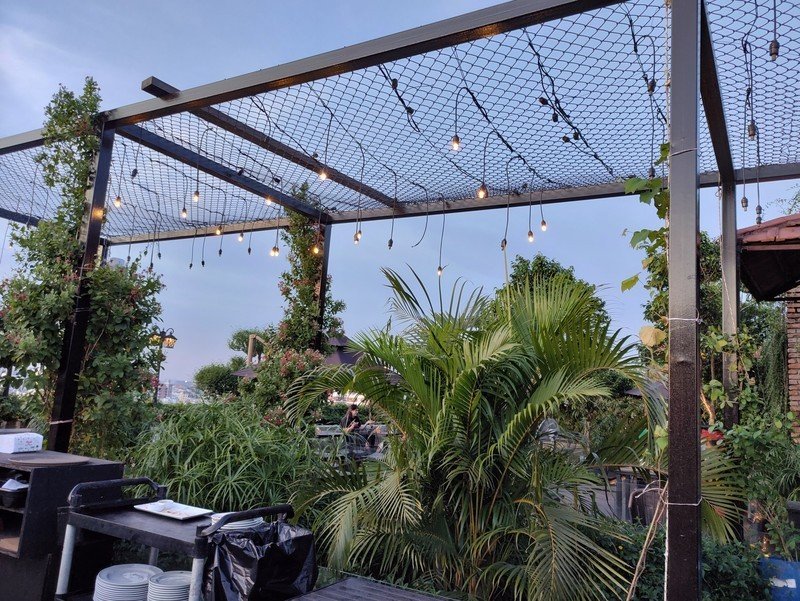
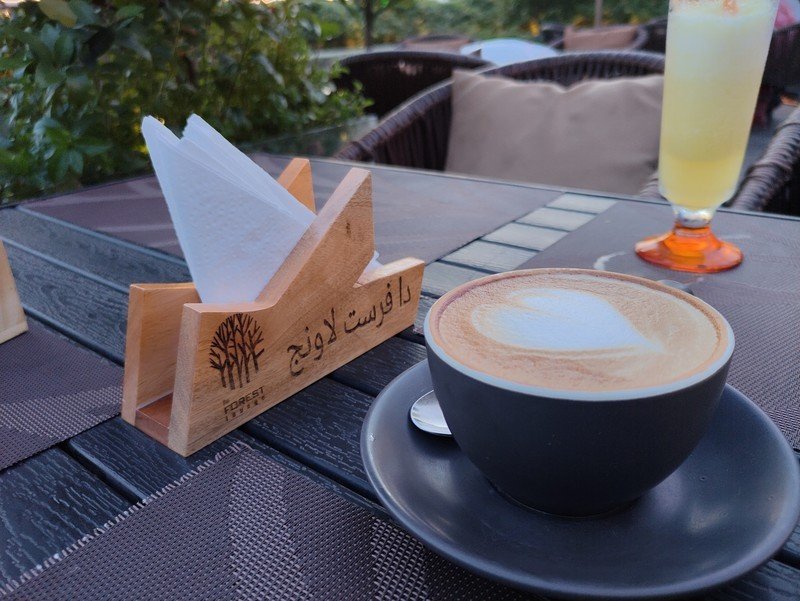
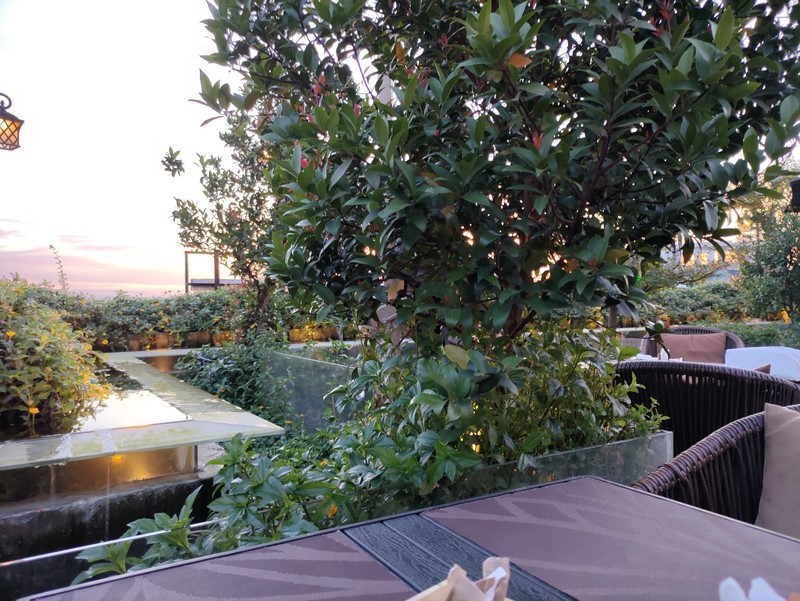
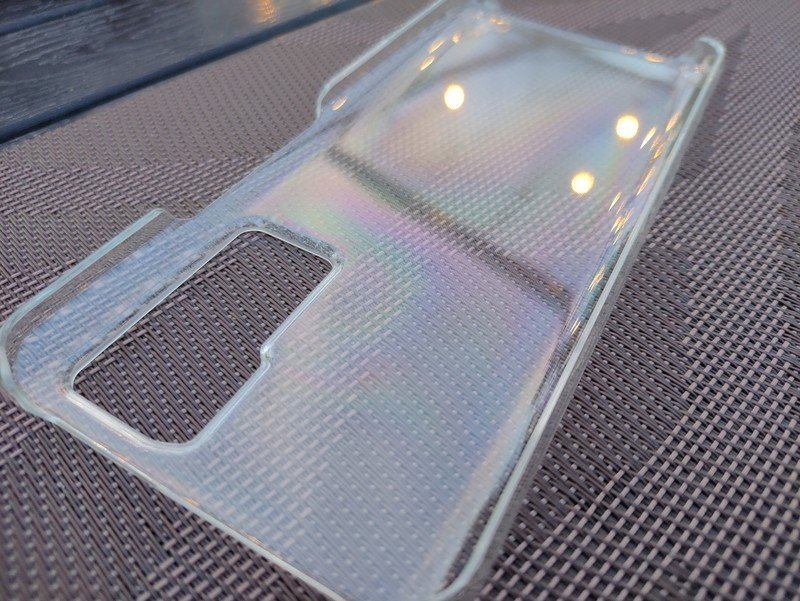

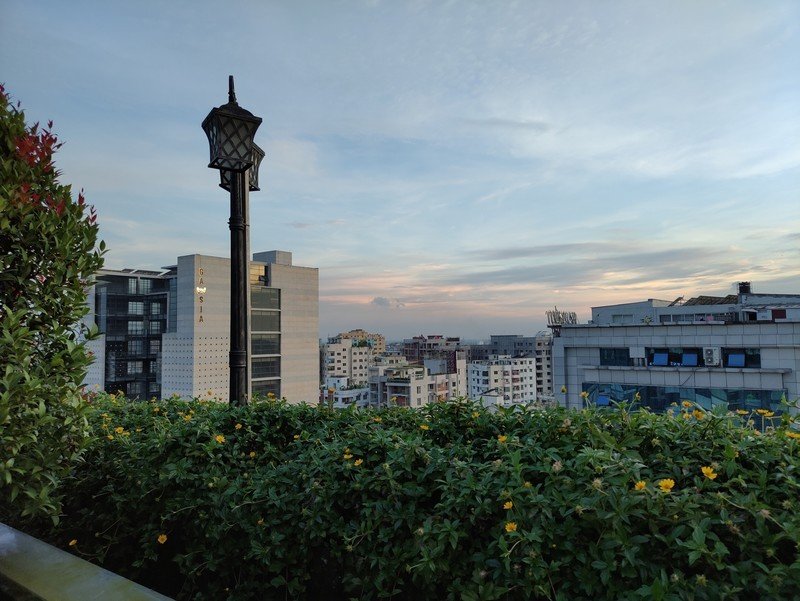
Here are some pictures taken with the main camera at 5x, 10x, 15x, and 20x zoom. As the camera zooms in more, the image becomes grainy and very processed. The images aren't very crisp, but they are clear enough.
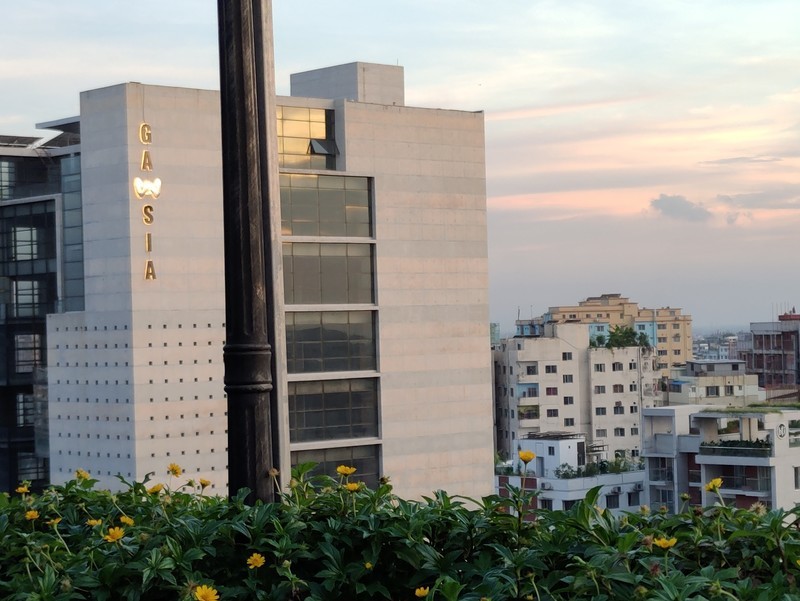
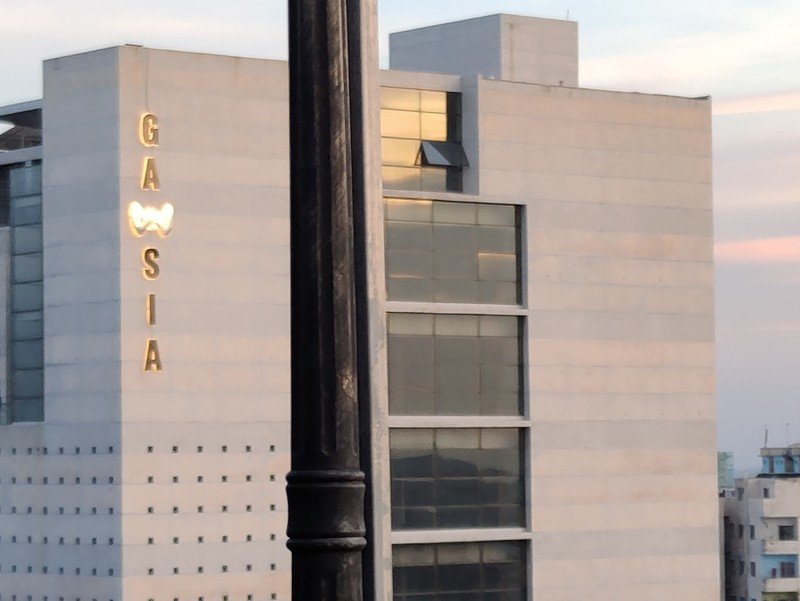
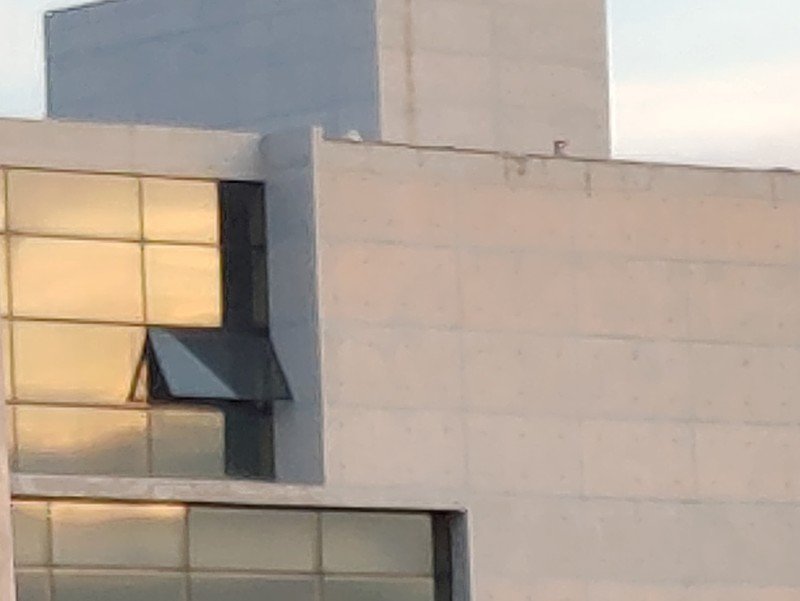
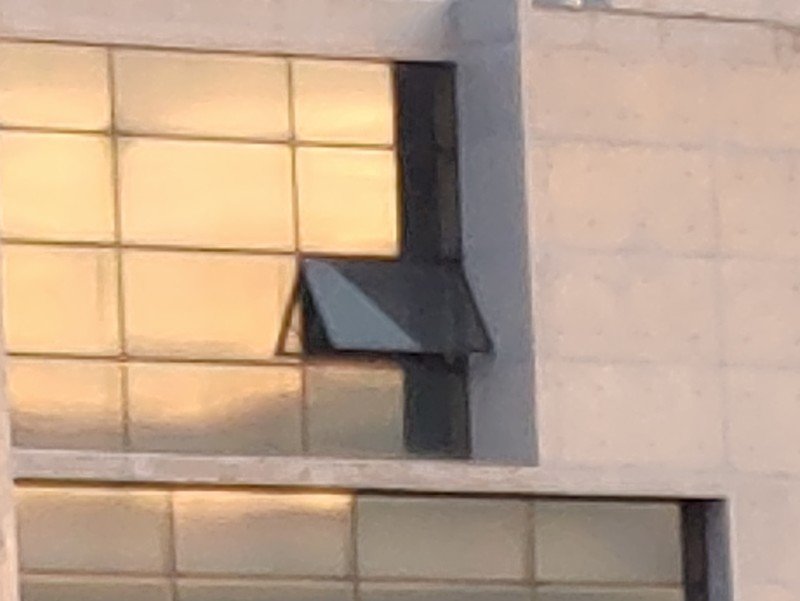
There's also a dedicated night mode in the ZTE Axon 30 5G. I shot some pictures with and without the night mode. While the difference wasn't as dramatic or pronounced as some other phones, the minor details and lighting looked much better with the night mode. You can see the flow of the water and the light bouncing off the glass.
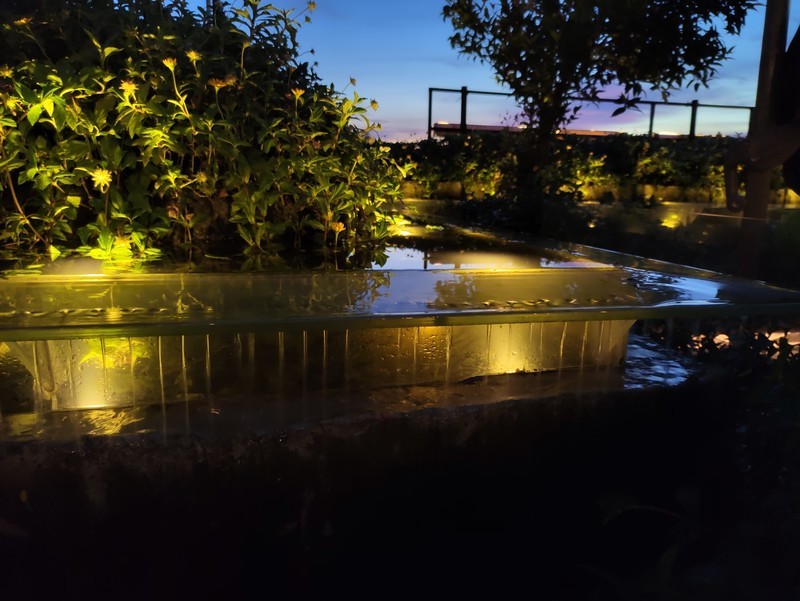

ZTE included loads of filters and settings to its cameras so you can play around when taking pictures. There are plenty of photography modes to choose from, such as the portrait mode with the bokeh effect, a night mode, a beauty mode, and AI assistance. You can also take panorama shots to capture a really wide-field view, such as natural settings.
The shots captured by the 5MP macro sensor weren't very good, just as I suspected. You need to bring your phone way too close to the subject, resulting in really dark shots. Ironically, the shadows diminish the details and add an odd vignette to the picture. The resulting photo looks like it was taken with a much older phone.
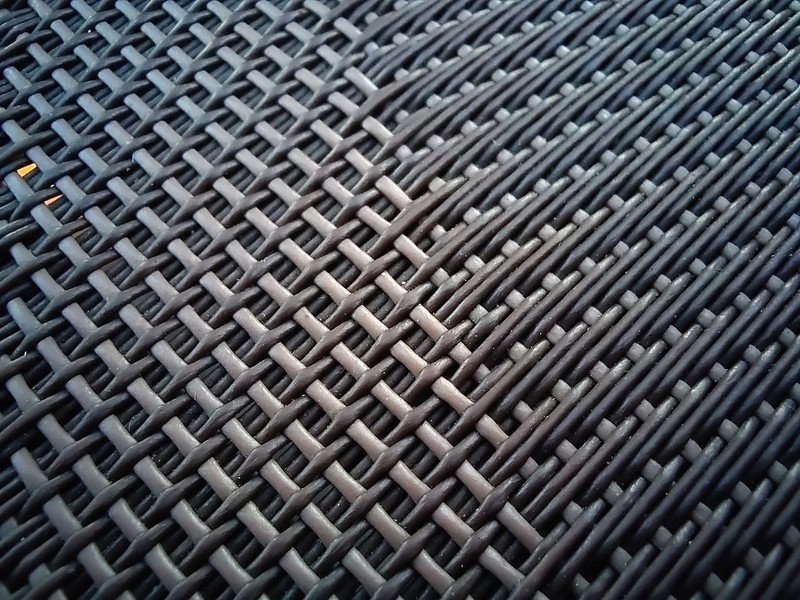
As for the under-display camera, you will find a 16MP lens to take selfies with. Since the technology is still fairly new, I did not expect anything to rave about. In line with those expectations, I found the pictures captured with the front camera inferior to the output of most selfie cams.

If you look at the sample I took, you can see just how bad the selfies turn out. The entire image is incredibly blurry, and the edges are soft. There is very little detail, and the colors are murky and oversaturated. And that's in prime lighting conditions, so you can imagine how useless the front snapper is in low light.


Still, compared to the Galaxy Z Fold 3's under-display camera, the ZTE Axon 30 looks amazing. If you look at the shot captured by the Axon 30 on the left, it has a lot more depth and better clarity. Meanwhile, the selfie taken with the Z Fold 3 on the right is downright terrible. It's safe to say that the Axon 30's under-display front camera is far superior.
ZTE Axon 30 5G: Competition
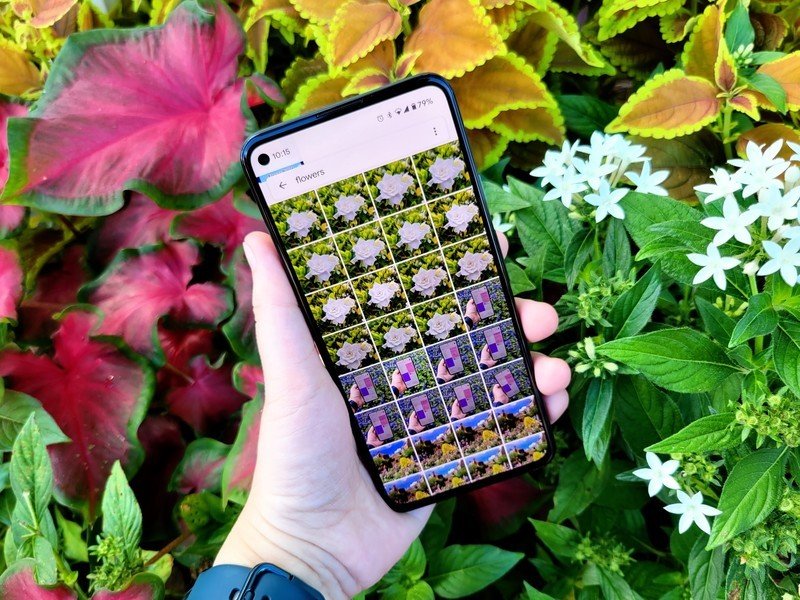
At the $500 price range, there are some excellent budget Android phones on the market right now. The ultimate mid-range phone that can compete with the ZTE Axon 30 5G would be the Google Pixel 5a. Both phones have 5G and are priced similarly with competing specs.
Although the Pixel 5a is $50 cheaper than the Axon 30, it has stellar main and front cameras, an IP rating, and unbeatable battery life. However, the Axon 30 trumps the Pixel 5a for performance, and it has a much better display. It also features an excellent cooling system that the Google Pixel 5a can't compete with.
The Axon 30 trumps the Pixel 5a for performance, and it has a much better display.
If we consider phones with under-display cameras, the Samsung Galaxy Z Fold 3 is the only true competitor for the ZTE Axon 30 at the moment. The Xiaomi Mi Mix 4 also has a UDC but it is only available in China. When comparing the screen qualities and the images shot by the front cameras, the Axon 30 wins hands down. The display covering the UDC is undoubtedly better, with a pixel density of 400ppi as opposed to 144ppi, and the selfies are a tad better (although still not good on their own).
Comparing the Z Fold 3 to the Axon 30 is like pitting apples against oranges. One is an ultra-premium, top-of-the-line, folding phone, whereas the other is attempting to package new tech under a value banner. Not to mention the exorbitant amount of money you need to pay to purchase the Z Fold 3 against the ZTE Axon 30's very reasonable asking price.
ZTE Axon 30 5G: Should you buy it?
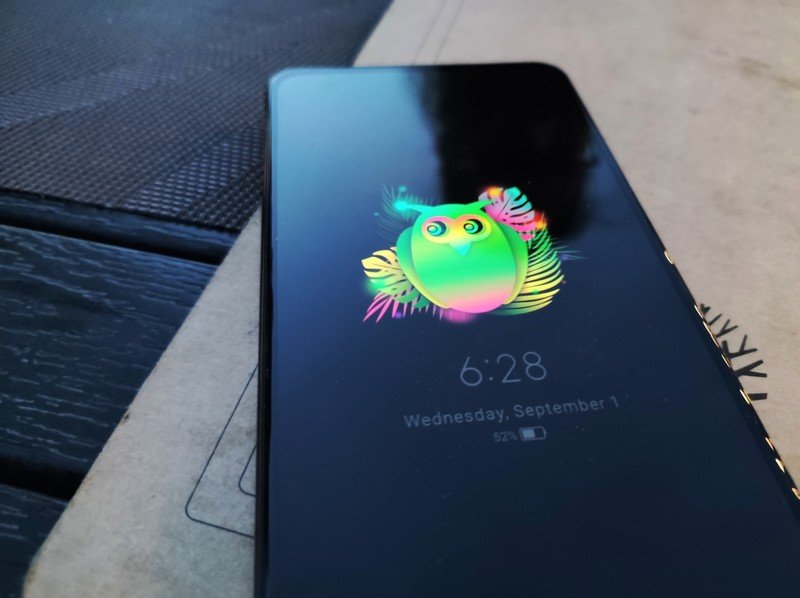
You should buy this if ...
- You want a sublime 120Hz AMOLED display without a distracting notch or cutout
- You want consistently great performance and 5G
- You dabble in long mobile gaming sessions
- You want a phone that will go from 0% to 100% in 50 minutes or less.
You shouldn't buy this if...
- You want an awesome front camera
- You want a fast and accurate fingerprint sensor
- You prefer playing audio on your phone's loudspeaker
- You want fancy features like wireless charging and water resistance
4 out of 5
In the end, the ZTE Axon 30 5G is a tough one to figure. It sports a remarkably stunning display, and I admire the efforts to create a new OS. It shows initiative to better the product. Yet, I find myself nitpicking on the horrid selfie camera and the lack of wireless charging or an IP rating. For a $500 phone using a brand new technology, I might be asking too much. But if the Google Pixel 5a can offer water resistance on a phone that's $50 cheaper, I expect the Axon 30 5G to have at least an IP rating.
That being said, if you are down for blurry selfies and don't care about the small details, you will be satisfied with this phone. The sheer computing power and that achingly pretty (oh-so-pretty) display will win your heart any day of the year. Just know what you signed up for when buying yourself one.
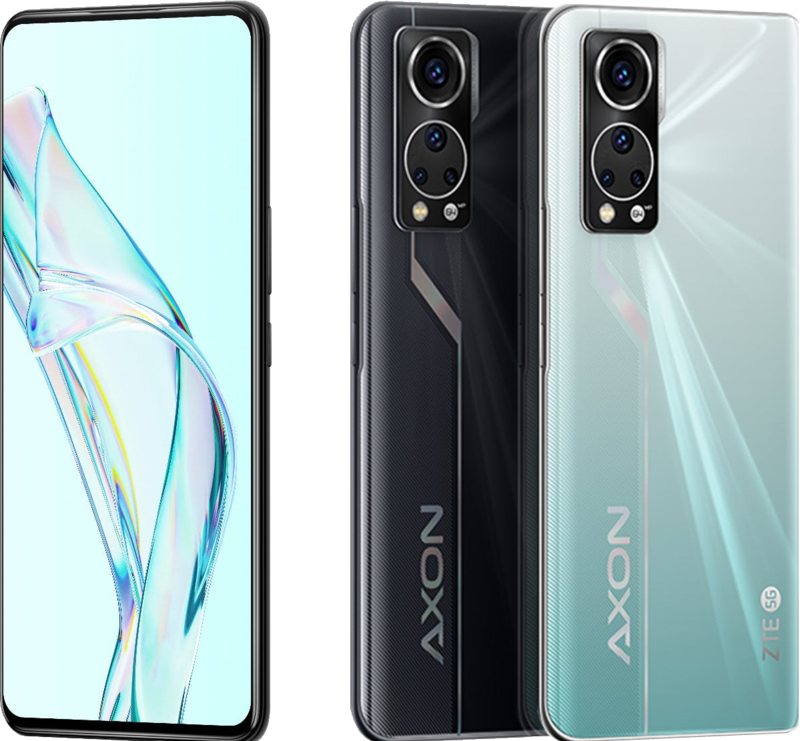
ZTE Axon 30 5G
Bottom line: If you can live with the essentially useless front camera and a few bumps here and there, the ZTE Axon 30 is an excellent mid-ranger with a wow factor. Staring at the buttery-smooth 120Hz AMOLED display is a treat, and it can handle any task you throw its way. It may not go on for days, but that 65W fast charging will top you up so fast you won't feel the difference!

Namerah enjoys geeking out over accessories, gadgets, and all sorts of smart tech. She spends her time guzzling coffee, writing, casual gaming, and cuddling with her furry best friends. Find her on Twitter @NamerahS.
